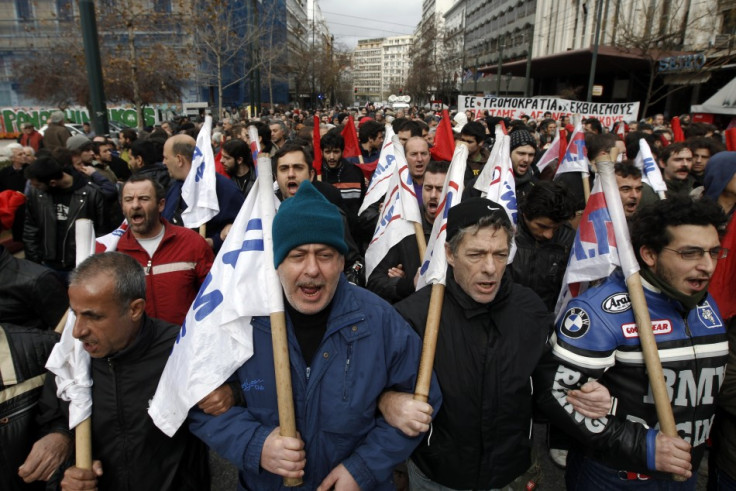Eurozone Crisis: Greek Leaders Agree New Deal Amid Public Furore

Three days after the deadline, Greek leaders have finally agreed on an austerity plan that will unlock a €130bn (£110bn) bailout.
The new measures, however, have been met with protests in the streets of Athens over further cuts that are likely to see thousands of jobs disappear from the public sector.
With very little sleep and with time rapidly running down on the multimillion euro bond that will mature next month, the three coalition leaders and the technocratic Prime Minister Lucas Papademos have reached an agreement.
The deal must now be ratified by the Greek parliament.
A spokeswoman for the prime minister's office said the agreement will provide for alternative cuts to be made after an earlier proposal was rejected during a meeting of the three coalition party leaders: George Papandreou (Pasok socialist party), Antonis Samaras (conservative New Democracy party) and George Karatzaferis (far-right Laos party)
Although all the other cuts demanded by Greece's eurozone partners and the International Monetary Fund were approved, party leaders had resisted new pension cuts.
Greece needs the money to avoid defaulting on its debts on 20 March when a big bond repayment is due - a scenario that could send shock waves throughout the European economy.
"It is clear that there is a lot of pressure being put on the country. A lot of pressure is being placed on the Greek people," finance minister Evangelos Venizelos said .
© Copyright IBTimes 2025. All rights reserved.





















